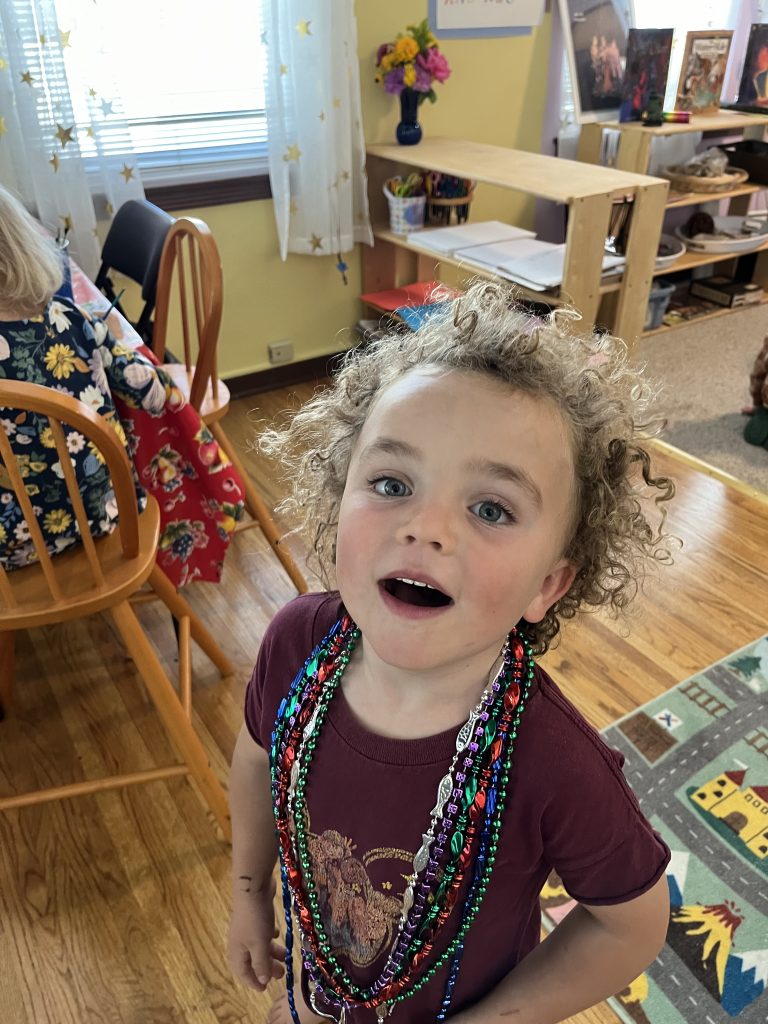Last year our Family Ministry Team was laser focused on reconceptualizing and implementing a new version of our Kids’ Connection program. At our Kids’ Connection Open House last month, we officially went public with the results of our program development efforts. The new program has a new look with additional spaces and materials, as well as with rituals and routines that are well established now. We are very proud of it.

Now, I want to share with you another aspect of our program development, one that is not so visible to those who visit us upstairs. In addition to our new spaces, materials, rituals and routines, our program also consists of the adults who spend an hour or more interacting with our UUCM children in a wide variety of contexts. This other form of program development, commonly known as staff development, aims to enhance the knowledge and skills of the people who bring the program to the children each week. Three of us have been exploring ways that we can enhance our interactions with our children by supporting their development—socially, emotionally, cognitively, and spiritually.
In early August, we three attended a webinar entitled “Using Everyday Conversations to Nurture Play and creativity in Young Children.” The presenter, Rebecca Rolland, EdD, is a certified speech language pathologist who specializes in children’s oral and written language development. Her presentation targeted teachers and caregivers of young children. We fit right in with that target audience, as we consider ourselves to be straddling that line between teacher and caregiver every Sunday.
In a nutshell, Rolland’s message in the webinar was that how teachers and caregivers talk with children can serve to open up opportunities for their development. She provided numerous examples of how conversations between children and adults can promote the having, exploring, and sharing of big, interesting, and wonderful ideas. She showed how open ended conversations with adults can support children as they learn to solve problems and show each other compassion. I left the webinar wanting to know more; so I ordered her book entitled “The Art of Talking with Children: The Simple Keys to Nurturing Kindness, Creativity, and Confidence in Kids.” Unlike the webinar, the book’s target audience is parents. I found, however, that her message and examples in the book were thoroughly applicable to the time we spend upstairs with our UUCM children.
One idea we have adopted from her webinar and book is what she calls the “Three E’s for Rich Talk.” According to Rolland, “rich talk” is a form of talk characterized by open-endedness, deep and patient listening, and a mutuality or reciprocity that engages both child and adult. The Three E’s are a sort of guide that adults can rely upon in their efforts to create more of this “rich talk.” Specifically, Rolland’s Three E’s are EXPAND, EXPLORE, AND EVALUATE.
In order to help children EXPAND their thinking, an adult might say to a child recounting a recent event—“Tell me more.” The adult who wants to help children EXPLORE ideas beyond those currently under consideration might prod with “I wonder what would happen if we did it this way instead of that way. What do you think would happen?” And adults can promote EVALUATION by asking a child who has just resolved a conflict with another child “What might you do next time you have this problem?”, following up their answer with “Why would you do that?” Examples of linguistic prompts that promote “rich talk” are innumerable and make conversations with children authentic and rewarding. In order to remind ourselves of the Three E’s while we are actually interacting with children, we have posted signs in the rooms upstairs where we spend the most time with the children.
So, the task of growing and improving our Kids’ Connection program is ongoing. We recognize that the success of the program lies not only in the spaces, materials, rituals, and routines that shape the experiences our children have on Sunday mornings. Success also resides in the knowledge, skills, and intentions of the adults who mediate the ways the children connect with the environments we have created for them.